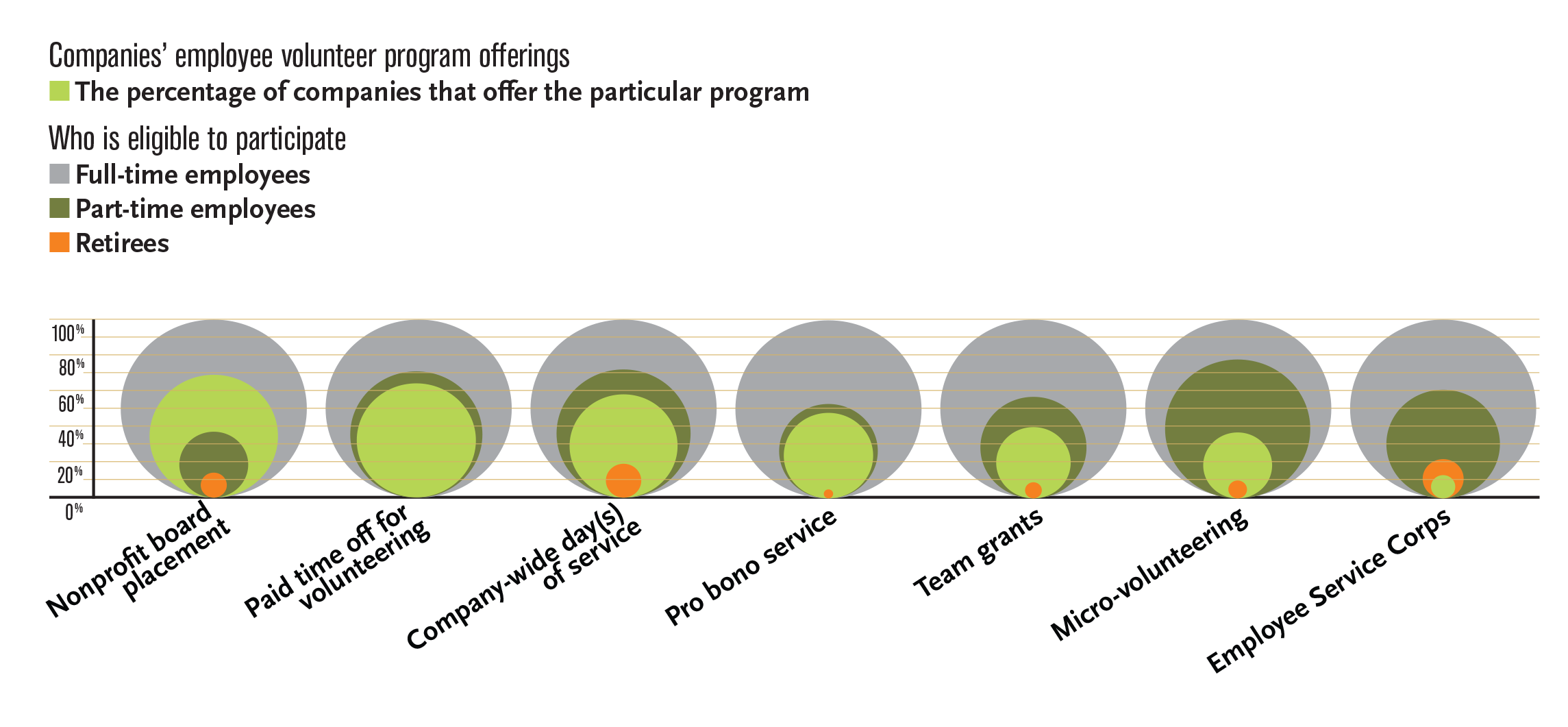Nonprofit board placement programs have grown in popularity and importance as companies and employees realize the rewards of sustained, high-level engagement in community organizations. According to the 2015 Community Involvement Study, nearly 70 percent of companies offer a nonprofit board program to their employees as a part of their volunteer program offerings (see Figure A). This is a huge change from 2011, where the same study revealed that only 26 percent of companies offered nonprofit board programs to all of their employees.

The business benefits of board placement programs are becoming better understood. For companies, having employees engaged in nonprofit leadership means fostering a positive, visible presence in the community. Participants in board programs benefit from exposure to a variety of peers across industries and sectors, gain valuable skills and knowledge, and are empowered to pursue their passion. Nonprofits benefit from human capital and skilled knowledge, thorough financial oversight, and spokesmen to help the organization advance their mission. At their best, nonprofit board programs support the communities in which employees live and work by providing resources and expertise to nonprofit organizations so that they can make an even greater impact.
Many of our member companies give of their money, time, and talent, to the organizations they help lead, and are often asked to take on specific roles and responsibilities that may not always be explained up front. Board training programs can help bridge that gap, offering leadership-track employees and executives on boards information on the expectations of a board member regarding transparency, ethics, accountability, planning, and resources. Matching an employee’s passions and abilities with a potential board placement is a time-intensive investment, so it is crucial to provide the tools necessary and provide support throughout the engagement so the match is a success. Training sessions help to set clear expectations to employees about the roles and commitments of serving on nonprofit boards and teach them the basic communication expectations, legal and fiduciary responsibilities, and how to measure success.